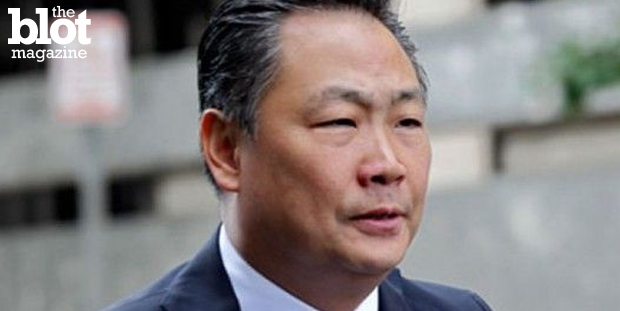A reporter has asked for his client’s immediate release from prison following a more-lenient plea agreement reached in a separate leak investigation.
Abbe D. Lowell, the attorney representing former U.S. State Department contractor Stephen Kim, has charged federal prosecutors with seeking a harsh sentence against his client while actively imploring a top government official to plea to a misdemeanor charge for the same crime.
Kim was accused of leaking sensitive information about North Korea to Fox News reporter James Rosen several years ago and then lying to federal investigators about his action. Those charges are somewhat similar to those against former CIA director Gen. David Petraeus, who resigned in 2012 amid an investigation in which the official was accused of giving classified documents to his biographer Paula Broadwell, with whom he was also engaged in an extra-marital affair.
Kim was sentenced to more than a year in federal prison after reaching an plea agreement with prosecutors. Petraeus, on the other hand, will likely serve no time in jail after prosecutors offered him an agreement that would lessen his offense to a misdemeanor.
In a letter dated March 6, Lowell wrote that he attempted to seek the same agreement prosecutors reached with Petraeus, but his proposition was rejected because Kim had allegedly lied to FBI agents. Petraeus was also accused of lying to federal investigators.
“The decision to permit Gen. Petraeus to plead guilty to a misdemeanor demonstrate more clearly than ever the profound double standard that applies when prosecuting so-called leakers and those accused of disclosing classified information for their own purposes,” Lowell wrote.
Critics have argued that the Obama administration — which has charged more leakers than any other administration in American history — often seeks harsher penalties against subordinate employees and contractors who disclose potentially embarrassing information about government policies, procedures and wrongdoings compared to high-ranking officials who disclose secret information to bolster their own agendas or those of the administration.
Former CIA director Leon Panetta and another government official were said to have allowed filmmakers access to secret conferences and other information not meant for public consumption as research into a planned documentary on the 2011 Pakistan raid that led to the death of Osama bin Laden. In another case, a now-retired Marine official was accused of leaking information about the government’s cyber warfare initiatives to a newspaper reporter, but was not brought up on charges because a trial might have led to the disclosure of other information that was not meant for public consumption.
Those cases are in stark contrast to other leak investigations that have led to criminal charges under the Espionage Act and other statues that have, or could, yield to tough punishments against the accused.
Former U.S. soldier Chelsea Manning, who was originally charged as Bradley Manning, was sentenced to more than 30 years in prison for leaking classified material to the website Wikileaks, including a previously-unreleased video that showed American soldiers killing two Reuters journalists during the second Iraq war (despite efforts by news organizations, the military still refuses to release the tape).
John Kiriakou, a former CIA analyst who blew the whistle on the CIA’s torture techniques, was sentenced to more than 30 months in prison after being charged under the Espionage Act. Supporters note that Kiriakou is the only person to be charged in connection with the interrogation programs while those who actually carried out the likely unlawful actions have gone unpunished.
Like Petraeus, former NSA officer Thomas Drake escaped a jail sentence after pleading guilty to one count of unauthorized access to a protected computer. But unlike Petraeus, Drake was originally charged with a laundry list of offenses after he leaked details about a top-secret NSA data collection program to a Baltimore Sun reporter in 2005. The government dropped most of the charges after Drake’s attorneys noted that the information he leaked was only classified after his disclosure was made.
Although Drake escaped a jail sentence, the lengthy prosecution ruined him financially. He lost his job at the NSA, and his reputation was tarnished to the point where he could not hold another government job. His government pension was also rescinded. He eventually found work at a local Apple retail store.
“High-level officials … leak classified information to forward their own agendas — or to impress their mistresses — with virtual impunity,” Lowell wrote.
Kim’s plea agreement cannot be changed merely because of the existence of an agreement in another case, but Lowell is hoping the Petraeus deal will be enough leverage to secure his client’s release from prison. And he’s asking prosecutors to join him in such an arrangement.
“Some justice and fairness can occur, even at this late date, by our at least joining to end (Kim’s) incarceration now,” Lowell wrote. “This uneven and disparate treatment can, at least in one case, be somewhat rectified.”
If federal prosecutors at the local level are unwilling to acknowledge Lowell’s request in Kim’s release, the lawyer says he intends to take his request all the way to the top.
“It is a matter of that importance,” he wrote.






